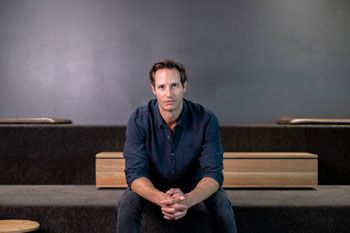The trend began in the United States in 2021 but quickly spread to many other parts of the world. In South Africa too, there have now been numerous reports of a similar trend emerging as employees reevaluate their personal and professional priorities in the wake of the pandemic.
Important to note is that this trend appears to be limited to skilled employees - a contingent who typically have the skills, experience and resources that allow them more career options and flexibility around, for example, working hours. Equally significant to note is that more and more experts and commentators are calling it the “great reset” and suggesting the trend be viewed as an opportunity for workers to better align their skills and expertise with their personal goals and values, and for companies to take a more robust and streamlined approach to the skills they hire for.

David Seinker, The Business Exchange
A Harvard Business Review article on the topic recommends that companies “get on the same page with employees by reconceptualising what it means to be part of their organisation”. Experts from three industries share their views around an effective reset.
Reset with a hybrid workplace model
David Seinker, founder and CEO of serviced office space offering, The Business Exchange, has been championing hybrid work models since long before the pandemic accelerated the adoption of alternative work models. He believes the Great Resignation too is an opportunity for us to reevaluate the nature and nuances of skilled work and to make the necessary adjustments to benefit both employees and employers.
“For some two years now, employees have proven that work can happen independently of a specific location and set working hours, which means that the office is now viewed as a destination rather than the default. Companies can’t afford to mandate employees to simply go back to the office in the traditional 9 to 5 sense without considering how experiences of the physical working environment contribute to employees’ job satisfaction,” he shares.
Seinker explains that hybrid work models offer a best-of-both approach that the post-pandemic employee is likely to insist on and businesses concerned about retaining talent need to at the very least consider more flexible working arrangements.
Reset with a robust working environment, dynamic opportunities
“Talent retention, particularly in the creative industries, has been a challenge for a while now, which is why we’ve been committed to exploring ways to ensure we can offer the best people the best working environment, whether that be on a permanent or freelance basis, where the emphasis is on harnessing their unique skills and expertise in a way that satisfies their professional goals as much as it does our needs,” says Reagen Kok, CEO of Hoorah Digital.
Interestingly, research by the Boston Consulting Group Johannesburg has found that money alone isn’t the only thing that attracts tech and digital talent in Africa, but that the “right workplace culture and values, and the learning and skills training they offer” still plays an important role in employee retention.
Kok shares that, in his experience, highly skilled and talented people are seeking more dynamic opportunities that align with their personal values. “The pandemic forced many of us to deeply reevaluate how we spend our time and we’re taking the steps to ensure there is more alignment between what we want from life and what we’re doing at work. Our role as employers is to step up and meet employees somewhere along this journey, or risk losing them to the companies who are.”
Reset to become more people focussed, lead with empathy
A reset necessitates the prioritisation of the human before the employee, acknowledging that workers are people before they are talent, skills or resources. And humans thrive in trusting, empathetic environments.
This is something that is high on the agenda for public relations and integrated marketing agency Irvine Partners, who remain committed to building trust and leading with empathy as some of the ways it seeks to mitigate the potential impact of the Great Resignation. Listening to employees’ expectations, whether through formal or informal channels, is key. “Employees want - and deserve - to feel heard, acknowledged and recognised. Operating from the point of view that your employees are your most valuable resource is imperative, and needs to underpin the company culture at large. As an example, this year we hired a senior team member who left a major agency because they refused to even consider remote working. He was spending hours a day in traffic and his employer didn’t see anything wrong with that. Even if they’d met him halfway with a hybrid, he would’ve stayed. They lost a talented and hardworking team member as a result. While all companies have different realities, there is always a middle ground,” says Hayley van der Woude, MD. She adds that it is the leaders in the organisation who need to drive an empathetic focus on people.
Writing in Business Day, Johann van Niekerk, MD of Outsized for Africa, says that those companies who see the great resignation as the great reset and adjust their strategies accordingly, “could increase the range of available skills and therefore the company’s competitiveness and output”.
